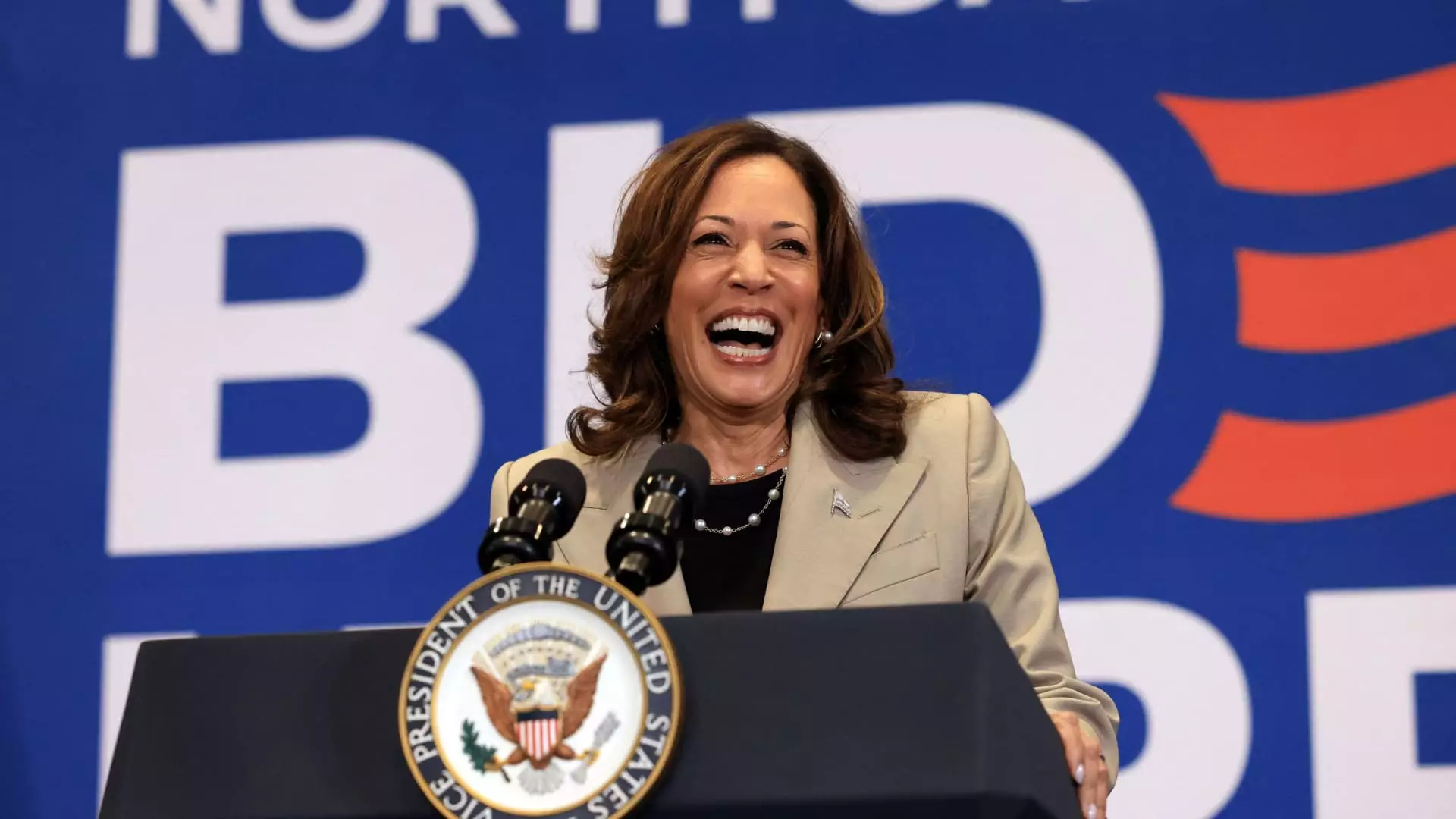In the intricate arena of American politics, Vice President Kamala Harris has emerged as a pivotal figure, especially amidst the ongoing uncertainties surrounding President Biden’s reelection campaign. During a recent visit to North Carolina, Harris underscored the Biden administration’s achievements in boosting domestic manufacturing, casting a sharp contrast with the tenure of former President Donald Trump. This article delves into the implications of Harris’s remarks, the pressures facing Biden, and the broader context of the upcoming elections.
During her rally in Fayetteville, North Carolina, Harris claimed a significant rebound in manufacturing jobs under the Biden administration, asserting that nearly 800,000 new positions have been created since Biden took office. This statement is strategically positioned to appeal to American workers who may feel left behind in the shifting landscape of the economy. Harris explicitly criticized the previous administration for the closure of over 1,000 factories and the loss of tens of thousands of manufacturing jobs.
Her assertion serves not only to bolster the Democratic narrative of economic recovery but also to portray the Trump administration as one that failed to protect American jobs. With such claims, Harris aims to foster optimism and urgency among Democratic supporters, igniting enthusiasm for the party as the electoral battleground prepares for the next showdown.
However, beneath the optimistic proclamations lies a more complex reality. Reports indicate that influential Democratic figures, including Senate Majority Leader Chuck Schumer and former House Speaker Nancy Pelosi, have voiced concerns about Biden’s viability as a candidate. This unease stems from anxiety regarding the potential risks his candidacy may pose to the party’s chances in the much-anticipated elections.
Even former President Obama is said to have expressed reservations about Biden’s lead over potential rivals, particularly in light of recent polling data showing that both Biden and Harris are trailing Trump. The growing speculation about a possible Harris-led ticket reflects internal party dynamics and challenges. If Biden were to withdraw, Harris’s ability to galvanize support from various demographics within the party would be instrumental in maintaining electoral momentum.
Polling data presents a troubling picture for the Democrats. A recent CBS/YouGov survey indicated a 5-point lead for Trump over Biden and an even closer 3-point margin against Harris. The results suggest that while Biden contemplates his political future, the Democratic Party is already assessing the potential for Harris to step into the lead role, should that need arise. This type of internal evaluation points to a proactive approach to managing electoral challenges, underscoring the reality that every vote will be critical in determining the outcome of the next election.
These polls not only inform campaign strategies; they also reveal the political sentiments of a divided electorate. Harris’s efforts to connect with voters now carry the dual responsibility of solidifying her standing as the frontrunner while also reaching out to independents and disillusioned voters from across the political spectrum.
Harris also turned her attention to the Republican Party’s purportedly divisive agenda, referencing a specific policy document known as Project 2025. By emphasizing the stark differences in vision between the two parties, Harris sought to present Democrats as champions of unity and inclusivity. Her rhetorical stance is likely aimed at both galvanizing the base and appealing to moderates who may fear the implications of extreme partisan politics.
In her critique of Republican ideals, Harris articulated a need for genuine unity—not merely the use of the term, but action that fosters equality and dignity for all Americans. This positioning is crucial as she aims to broaden her appeal beyond traditional Democratic strongholds, reflecting the urgent need for an inclusive message that resonates across diverse audiences.
A New Path Forward: The Role of Achievements
As part of her campaign narrative, Harris highlighted several key achievements of the Biden administration, including healthcare reforms, fiscal relief measures, and efforts to enhance economic security for underrepresented communities. By foregrounding these accomplishments, she capitalizes on the tangible benefits of Democratic governance, while also framing the party as a defender of the middle class and marginalized populations.
The strategy reflects a dual focus—affirming the successes of the current administration while preparing the ground for a Harris candidacy, should Biden step back. It is emblematic of the shifting landscape of American politics, where the stakes are high and the competition is fierce.
The current political climate is rife with opportunity and challenges as Harris positions herself as a key player in the Democratic narrative. With mounting pressure on Biden, the upcoming elections promise to be both contentious and pivotal for the future direction of the party and its adherence to foundational ideals of unity and progress.


Leave a Reply